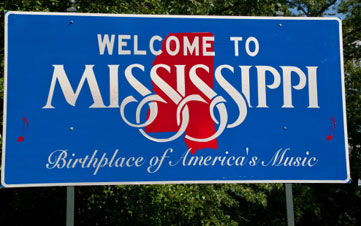
Profit and prosper with the best of Kiplinger's advice on investing, taxes, retirement, personal finance and much more. Delivered daily. Enter your email in the box and click Sign Me Up.
You are now subscribed
Your newsletter sign-up was successful
Want to add more newsletters?

Delivered daily
Kiplinger Today
Profit and prosper with the best of Kiplinger's advice on investing, taxes, retirement, personal finance and much more delivered daily. Smart money moves start here.

Sent five days a week
Kiplinger A Step Ahead
Get practical help to make better financial decisions in your everyday life, from spending to savings on top deals.

Delivered daily
Kiplinger Closing Bell
Get today's biggest financial and investing headlines delivered to your inbox every day the U.S. stock market is open.

Sent twice a week
Kiplinger Adviser Intel
Financial pros across the country share best practices and fresh tactics to preserve and grow your wealth.

Delivered weekly
Kiplinger Tax Tips
Trim your federal and state tax bills with practical tax-planning and tax-cutting strategies.

Sent twice a week
Kiplinger Retirement Tips
Your twice-a-week guide to planning and enjoying a financially secure and richly rewarding retirement

Sent bimonthly.
Kiplinger Adviser Angle
Insights for advisers, wealth managers and other financial professionals.

Sent twice a week
Kiplinger Investing Weekly
Your twice-a-week roundup of promising stocks, funds, companies and industries you should consider, ones you should avoid, and why.

Sent weekly for six weeks
Kiplinger Invest for Retirement
Your step-by-step six-part series on how to invest for retirement, from devising a successful strategy to exactly which investments to choose.
When it comes to the basics of personal finances, there's considerable variation among the states of our union.
That's the finding of securities industry group Finra (Financial Industry Regulatory Authority), which surveyed more than 28,000 Americans in all 50 states and the District of Columbia. It asked five questions about money management basics -- for instance, Buying a single company's stock usually provides a safer return than a stock mutual fund. True or false? -- to derive a Financial Capability score. Finra also asked five questions about how Americans actually managed their own money -- Have you ever tried to figure out how much you need to save for retirement? Yes or no -- to produce a Financial Behavior score. (By the way, you, too, can take the quiz.)
We added each state's Financial Capability ranking and its Financial Behavior ranking, then divided the sum in half to create a blended score. So what are the most financially literate and financially challenged states? The results may surprise you.

5. Washington State (Most Literate)
Financial Capability rank: 5th
Financial Behavior rank: 8th
Unemployment rate: 8.3% (National average is 8.1%)
On capability: Is it safer to own a stock mutual fund or a single company stock? In the Evergreen State, 64% of respondents got the right answer (mutual fund) -- the best score of any state. At the same time, they were just in the middle of the pack for understanding that shortening a mortgage term reduces interest costs over the long term.
On behavior: Almost nine out of ten Washingtonians said they had a savings account, money market account or CD -- second place, nationally. They also ranked #3 for having put aside money for a rainy-day fund or emergencies.

3. Idaho (Most Literate, tied with...)
Financial Capability rank: 4th
Financial Behavior rank: 7th
Unemployment rate: 7.9%
On capability: Residents of the Gem State did best on this question: A 15-year mortgage typically requires higher monthly payments than a 30-year mortgage, but the total interest paid over the life of the loan will be less. True or false? Eight-six percent gave the correct answer, true.
On behavior: Idaho residents were buoyed by a fourth-place finish for having taken the time to figure out how much they'll need to retire and for having sought advice from a financial professional sometime in the past five years. Residents also scored well on understanding that inflation reduces the spending power of your investment return.

3. Utah (tied with Idaho)
Financial Capability rank: 10th
Financial Behavior rank: 2nd
Unemployment rate: 5.8%
On capability:Residents of the Beehive State had a second-place finish on their understanding of how a shorter mortgage term has higher payments but lower interest costs. Interestingly, they scored much lower -- 16th place, actually -- on understanding how compound interest works.
On behavior: Utahns were more likely than any other state's residents to have run a credit check on themselves or run their own credit score -- 61 percent had done this. They also ranked high -- third among all states -- for having sought advice from a financial professional.
PLUS: Downsize Your Mortgage?

2. Colorado (Most Literate)
Financial Capability rank: 6th
Financial Behavior rank: 4th
Unemployment rate: 7.8%
On capability: Residents of the Centennial State scored well (fifth place overall) on the question about how shortening a mortgage term reduces interest costs.
On behavior: Coloradans did best (third place overall) on running a credit check on themselves or running their own credit score. They also ranked relatively high for having figured out how much they'll need for retirement.

1. Minnesota (Most Literate)
Financial Capability rank: 2nd
Financial Behavior rank: 6th
Unemployment rate: 5.8%
On capability: Minnesotans ranked second overall (behind New Hampshire) on the question of how bond prices are affected by a rise in interest rates (they fall) and placed third on the question of whether investing in a mutual fund is safer than a buying a single company's stock. You betcha.
On behavior: They ranked particularly high for having tried to figure out how much they need to save for retirement: Half of respondents said they had.

5. Kentucky (Least Literate)
Financial Capability rank: 41st
Financial Behavior rank: 50th
Unemployment rate: 8.6%
On capability: Residents of the Bluegrass State had the third-lowest score on the question of diversification: More than half considered a single company's stock less risky than shares in a mutual fund.
On behavior: Kentuckians fared worse at putting knowledge into action, with a dead-last ranking among states on the question of whether they'd obtained a copy of their credit report or run their credit score in the last 12 months -- only 42% had done so.
QUIZ: The Truth About Credit and Debt

4. West Virginia (Least Literate)
Financial Capability rank: 45th
Financial Behavior rank: 51st
Unemployment rate: 6.9%
On capability: Mountaineers' knowledge of personal finance was near the bottom, though they did somewhat better (35th place) on the question of how inflation reduces the spending power of your rate of return.
On behavior: In West Virginia, survey respondents were last in the union in having sought financial counseling in the last five years.

2. Louisiana (Least Literate, tied with...)
Financial Capability rank: 51
Financial Behavior rank: 46
Unemployment rate: 7.1%
On capability: Residents of the Sportsman's Paradise posted a last-place result on the question of how inflation would reduce investment returns and savings. They also scored second-to-last in understanding diversification, with just under half believing that a investing in a mutual fund is riskier than owning stock of a single company.
On behavior: Louisianans actually manage their money better than their understanding would suggest, per the survey, with a 25th-place result (37%) having rainy-day or emergency funds set aside.

2. Arkansas (tied with Louisiana)
Financial Capability rank: 49
Financial Behavior rank: 48
Unemployment rate: 7.4%
On capability: Arkansans didn't grasp the concept of compound interest well -- their results on the question of how much $100 at 2% interest would be worth after five years (answer: More than $102) was the second lowest overall (behind only Tennessee).
On behavior: Only 63% of residents of the Natural State reported having a savings account, money market account or CDs, the lowest of any state.

1. Mississippi (Least Literate)
Financial Capability rank: 50
Financial Behavior rank: 49
Unemployment rate: 9.0%
On capability: In the Magnolia State, residents had a poor grasp of the concept of diversification: Fewer than half knew whether shares of a mutual fund or single company presented more risk -- the worst among all states. (As point of comparison, in Washington state, 64% answered correctly that investing in shares of a single company is riskier.)
On behavior: The state's residents weren't dead last in any particular category, but they placed third from the bottom for maintaining emergency or rainy-day funds that cover three months worth of expenses.

More About these Numbers
So, why do these states rank the way they do? There's no easy answer.
Some things are known: Older respondents tend to do better on these questions -- they've had more time to gain wisdom. Similarly, respondents with more education tend to do better as well. Higher income is also linked to better results. There's obviously a lot of variance between states on their populations.
However, the Employment Benefit Research Institute, a Washington, D.C.-based think tank, did a deeper analysis of FINRA's numbers, and it reached an interesting result. Sudipto Banerjee, a researcher for EBRI, controlled for variables such as income, education and wealth between the states so that the states could be compared on a level playing field. He found that for most of:
-- The highest-placing states in financial behavior
-- The lowest-placing states in financial behavior
-- The lowest-placing states in financial capability
A state's position wasn't just the result of its demographic makeup, but may also have something to do with simply living in that state.
And what could that be? EBRI doesn't go on to analyze this. But state factors could include how states regulate their banks -- or more significantly, non-bank lenders like payday and car title lenders. State-by-state efforts to improve financial literacy are a likely factor, but the effects of those programs may only be beginning to be felt. And some effects could be highly specific: More Alaskan residents reported having a bank account or other savings than any other state, for example, but they were just 38th in having a rainy day fund. In other words, they have accounts, but little in them. One possible explanation? Thanks to oil revenues, Alaska distributes money to its residents via its "Permanent Fund", rather than taxing them. Having an account ready for a direct deposit is a logical strategy.
You may know more about why your state is or isn't competent in financial affairs and we encourage you to share in our comments below.
Not in the top five or bottom five and want to see how your state did? Go to EBRI's study and see Appendix A and B to get a ranking and question-by-question analysis.

Profit and prosper with the best of Kiplinger's advice on investing, taxes, retirement, personal finance and much more. Delivered daily. Enter your email in the box and click Sign Me Up.
-
 Nasdaq Leads a Rocky Risk-On Rally: Stock Market Today
Nasdaq Leads a Rocky Risk-On Rally: Stock Market TodayAnother worrying bout of late-session weakness couldn't take down the main equity indexes on Wednesday.
-
 Quiz: Do You Know How to Avoid the "Medigap Trap?"
Quiz: Do You Know How to Avoid the "Medigap Trap?"Quiz Test your basic knowledge of the "Medigap Trap" in our quick quiz.
-
 5 Top Tax-Efficient Mutual Funds for Smarter Investing
5 Top Tax-Efficient Mutual Funds for Smarter InvestingMutual funds are many things, but "tax-friendly" usually isn't one of them. These are the exceptions.
-
 What to Do With Your Tax Refund: 6 Ways to Bring Growth
What to Do With Your Tax Refund: 6 Ways to Bring GrowthUse your 2024 tax refund to boost short-term or long-term financial goals by putting it in one of these six places.
-
 What Does Medicare Not Cover? Eight Things You Should Know
What Does Medicare Not Cover? Eight Things You Should KnowMedicare Part A and Part B leave gaps in your healthcare coverage. But Medicare Advantage has problems, too.
-
 15 Reasons You'll Regret an RV in Retirement
15 Reasons You'll Regret an RV in RetirementMaking Your Money Last Here's why you might regret an RV in retirement. RV-savvy retirees talk about the downsides of spending retirement in a motorhome, travel trailer, fifth wheel, or other recreational vehicle.
-
 The Six Best Places to Retire in New England
The Six Best Places to Retire in New Englandplaces to live Thinking about a move to New England for retirement? Here are the best places to land for quality of life, affordability and other criteria.
-
 The 10 Cheapest Countries to Visit
The 10 Cheapest Countries to VisitWe find the 10 cheapest countries to visit around the world. Forget inflation and set your sights on your next vacation.
-
 15 Ways to Prepare Your Home for Winter
15 Ways to Prepare Your Home for Winterhome There are many ways to prepare your home for winter, which will help keep you safe and warm and save on housing and utility costs.
-
 Six Steps to Get Lower Car Insurance Rates
Six Steps to Get Lower Car Insurance Ratesinsurance Shopping around for auto insurance may not be your idea of fun, but comparing prices for a new policy every few years — or even more often — can pay off big.
-
 How to Increase Credit Scores — Fast
How to Increase Credit Scores — FastHow to increase credit scores quickly, starting with paying down your credit card debt.
